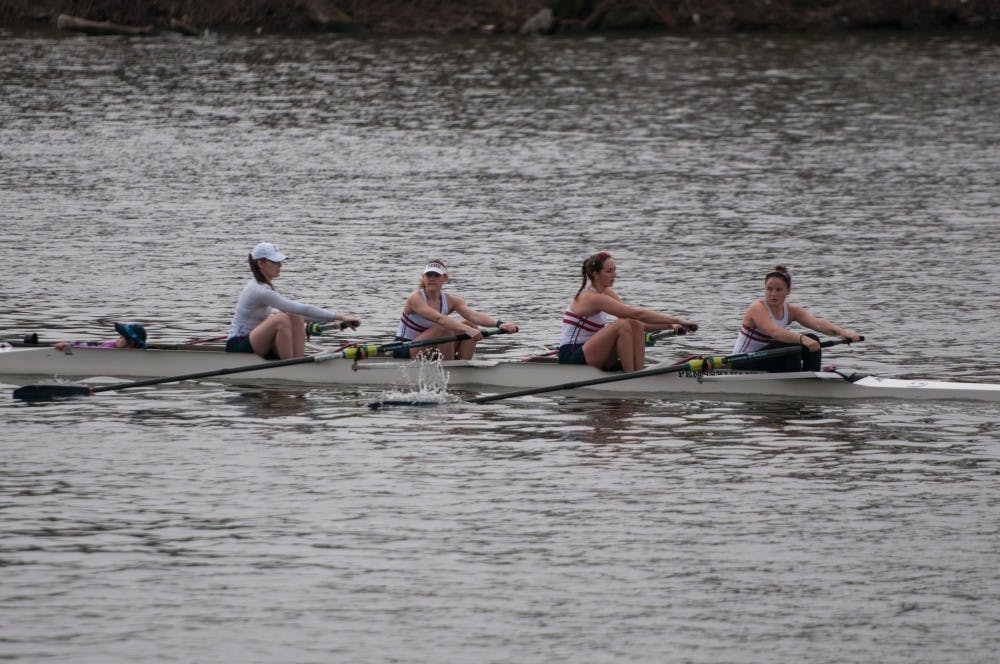
Though Penn women's rowing couldn't quite hang with powerhouse Syracuse, the Red and Blue still did take a respectable third place this weekend at the Doc Hosea Invitational.
Credit: Zach SheldonBefore getting into who rowed the best and which teams finished first, it is important to understand that wins and losses are not the sole indicators of success, and that is the important takeaway from the Doc Hosea Invitational.
The invitational is held in honor of Dr. Tim Hosea, the physician for the national rowing team that won 12 world rowing championships and died in 2015 as a legend known for his immense contributions to the growth of the sport in the U.S..
“We were really pleased to be able to put together a regatta in honor of Dr. Hosea,” Penn women's rowing coach Wesley Ng said. “We know that part of the sport of rowing is giving back to the people who have given to you and also paying it forward.”
Honoring D. Hosea's memory properly, the Quakers performed admirably in the morning, finishing third in a nine-team field. Some particularly strong performances came in the Varsity 4 B Grand Final and the Varsity 8 Grand Final, where both Penn boats finished second behind rowing powerhouse Syracuse.
Although Penn was able to defeat Syracuse last year, this past weekend's loss is nothing to be ashamed of.
“Last year was a great upset win,” Coach Ng said. “This year, expectations were higher, but we have a lot of respect for Syracuse, but of course it’s disappointing to lose any race.”
The morning performances, as solid as they were, should have foreshadowed stronger performances in the mid-morning and afternoon.
However, no other Penn boats placed in the top three in any other heat, which was surprising considering how well Penn rowed in the Orange Challenge Cup, a three-team meet with framework similar to that of the Doc Hosea Invitational and also comprising of Syracuse and Northeastern.
“When we went to the mid-morning finals, [after the morning races] I think our preparation in between needed to be better,” a noticeably frustrated Coach Ng said. “Expectations for every regatta are to put our best effort forward and to also reflect our belief in ourselves. I think we did a moderate job.”
Ng’s assessment of the team, although blunt, is very telling. As a team, each rower needs to come out stronger to avoid underperforming in the future.
The first chance to do so will be next Sunday when the Quakers face Yale and Dartmouth in Connecticut.
The Daily Pennsylvanian is an independent, student-run newspaper. Please consider making a donation to support the coverage that shapes the University. Your generosity ensures a future of strong journalism at Penn.
Donate




